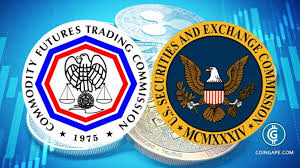Former CFTC Chairman Calls to Strengthen Cryptocurrency Regulations
Matt Stankiewicz rejoins us for another posting on cryptocurrency compliance. Matt can be reached at [email protected].

Just this month, former CFTC Chairman Timothy G. Massad released a report through the Brookings Institution entitled “It’s Time to Strengthen the Regulation of Crypto-Assets.” Interestingly enough, Mr. Massad was at the helm of the CFTC during the financial crisis. He even notes that he “share[s] the desire to reduce our dependence on the institutions that almost caused a collapse of the entire global financial system.” Based on that, as one can expect, the report is actually very pro-crypto and provides a reasoned and sensible discussion. The report is a very well-crafted discussion on the current state of cryptocurrency regulations, and is especially useful for those still learning the technological underpinnings, as it walks through those key aspects in an easy to understand manner. The report also suggests a public policy road map for the current administration to follow, boiling it all down to seven key recommendations.

In the beginning of the report, the author harkens back to the causes of the 2008 financial crisis and discusses why distributed ledger technology would likely not have prevented many, if not all, of those causes. He then expertly compares and contrasts the crypto industry with traditional financial institutions. The second section delves into all the current problems in the crypto industry – specifically those practices that are explicitly outlawed in traditional financial institutions. The discussion is eye-opening. Many suspect that the cryptocurrency industry isn’t large enough to cause any major global impacts that the big banks did. However, the author points out that crypto is already exacerbating cyber-attacks on traditional financial markets but allowing hackers to maintain anonymity and making ransomware demands. These hacks can even have geopolitical impacts, as potentially evidenced by the Coincheck hack. While official unattributed, intelligence experts believe North Korea perpetrated the hack in order to fund Kim Jung Un’s regime. Are we really sure that cryptocurrency isn’t able to have a significant global impact at this very moment? And it will only increase as the industry blossoms.
In order to address these problems, the report first highlights the largest and most glaring issue with regards to crypto-regulation – who is actually tasked with regulating it? We’ve touched on this topic before, but it’s still yet to be addressed. The SEC and the CFTC are the two bodies best positioned to handle the industry, though neither has outright jurisdiction yet. The SEC can exercise jurisdiction over securities, though most cryptocurrencies do not fall under that ambit. For example, Bitcoin – the current king of crypto – is not considered a security. Meanwhile, the CFTC has jurisdiction over commodities. Bitcoin has been determined to be a commodity under the Commodity Exchange Act. However, the CFTC’s jurisdiction is only implicated “when a virtual currency is used in a derivatives contract, or if there is fraud or manipulation involving a virtual currency traded in interstate commerce.” This jurisdiction is far too narrow for what is needed in this space.

The author makes a striking point early on, that the crypto industry hoped the technology would cull “reliance on the large financial institutions that were at the center of the financial crisis, but it has instead given rise to new institutions that are far less accountable than those big banks.” This should resonate with proponents of the crypto industry. While many seek a hands-off approach to regulation, understand that the goal of regulations is not to alter or “ruin” Bitcoin, Ethereum, or the like, but rather to prevent the Mt. Goxes, the Bitconnects, and the “pump-and-dump” schemes that plague the industry. Are these really the types of companies that should be major players in the industry?
Of all the recommendations, Recommendation #7 is the most poignant. This recommendation calls for better self-regulation within the industry. This also led me to the obvious realization that there’s nothing stopping crypto companies from implementing various compliance best practices. Indeed, several exchanges do have significant controls in place. However, there are still several exchanges that fall absurdly short of a decent standard, such as the exchange that lost $190 million in client funds after its owner – the only person in the entire company with access to the private keys – passed away suddenly. I’d like to repeat that – a single person held the password to access all of the exchange’s funds. Those funds are still unable to be accessed and may be lost forever.
In the current free market, it would be up to consumers to vote with their dollars and only utilize exchanges and companies that adhere to strict self-regulation. Is this a possibility? Very unlikely. I can speak from personal experience, as I’ve sunk money into exchanges that clearly lacked basic HTML skills, never mind having a functioning compliance department. I’ve learned valuable lessons in that regard, and I like to think others have as well, but we still have a ways to go in this regard. Especially if the market bubbles up again as it did in early 2018.















